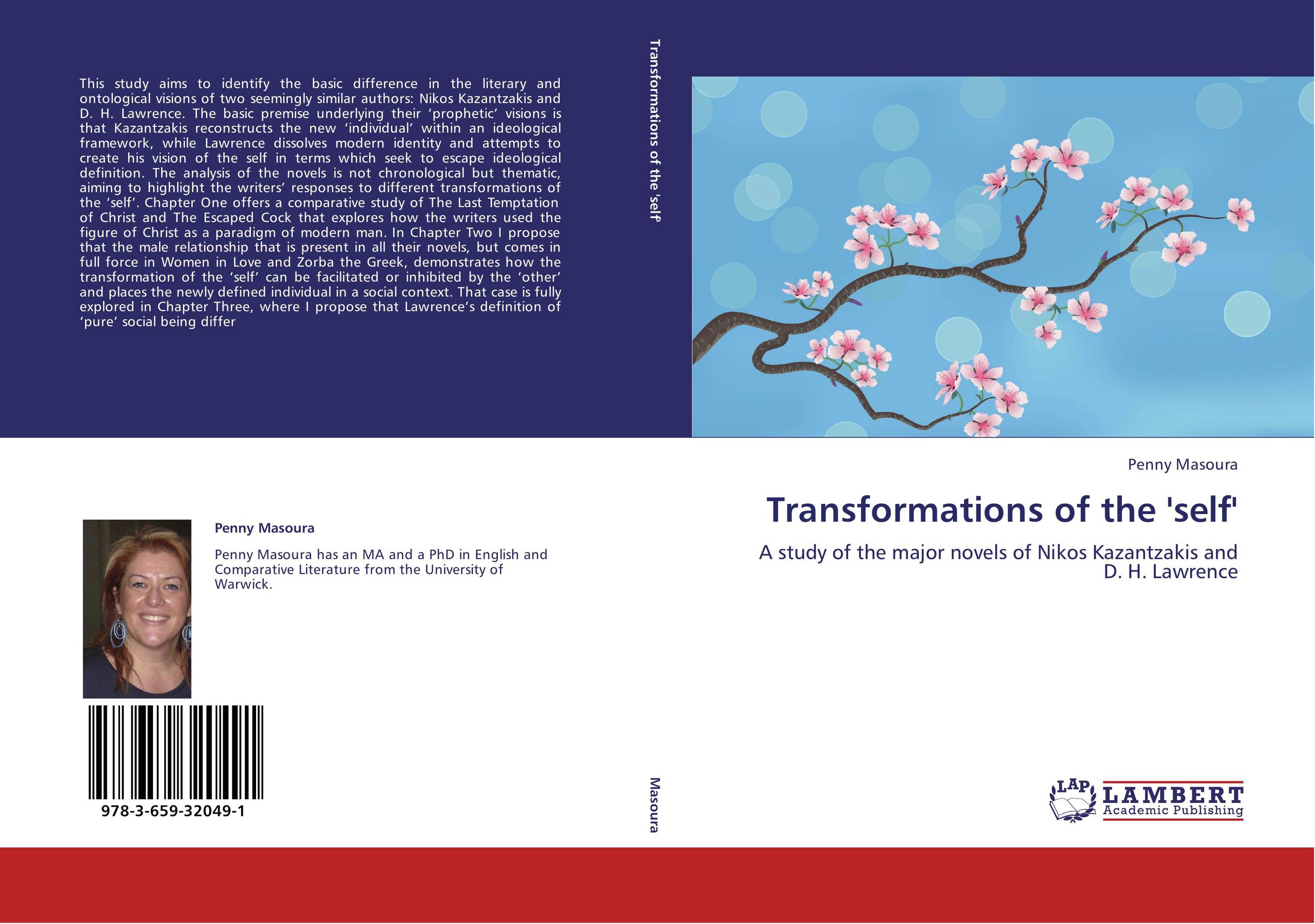| Поиск по каталогу |
|
(строгое соответствие)
|
- Профессиональная
- Научно-популярная
- Художественная
- Публицистика
- Детская
- Искусство
- Хобби, семья, дом
- Спорт
- Путеводители
- Блокноты, тетради, открытки
Transformations of the 'self'. A study of the major novels of Nikos Kazantzakis and D. H. Lawrence

В наличии
| Местонахождение: Алматы | Состояние экземпляра: новый |

Бумажная
версия
версия
Автор: Penny Masoura
ISBN: 9783659320491
Год издания: 2013
Формат книги: 60×90/16 (145×215 мм)
Количество страниц: 288
Издательство: LAP LAMBERT Academic Publishing
Цена: 50231 тг
Положить в корзину
Позиции в рубрикаторе
Отрасли знаний:Код товара: 117373
| Способы доставки в город Алматы * комплектация (срок до отгрузки) не более 2 рабочих дней |
| Самовывоз из города Алматы (пункты самовывоза партнёра CDEK) |
| Курьерская доставка CDEK из города Москва |
| Доставка Почтой России из города Москва |
Аннотация: This study aims to identify the basic difference in the literary and ontological visions of two seemingly similar authors: Nikos Kazantzakis and D. H. Lawrence. The basic premise underlying their ‘prophetic’ visions is that Kazantzakis reconstructs the new ‘individual’ within an ideological framework, while Lawrence dissolves modern identity and attempts to create his vision of the self in terms which seek to escape ideological definition. The analysis of the novels is not chronological but thematic, aiming to highlight the writers’ responses to different transformations of the ‘self’. Chapter One offers a comparative study of The Last Temptation of Christ and The Escaped Cock that explores how the writers used the figure of Christ as a paradigm of modern man. In Chapter Two I propose that the male relationship that is present in all their novels, but comes in full force in Women in Love and Zorba the Greek, demonstrates how the transformation of the ‘self’ can be facilitated or inhibited by the ‘other’ and places the newly defined individual in a social context. That case is fully explored in Chapter Three, where I propose that Lawrence’s definition of ‘pure’ social being differ
Ключевые слова: comparative, D.H. Lawrence, Nikos Kazantzakis



